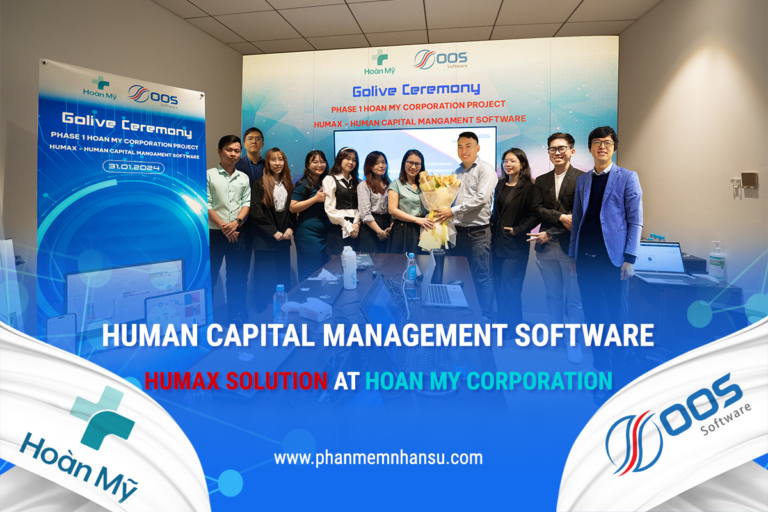Forecasting 6 future careers that businesses are forced to implement the digital revolution to improve the role of people in the labor market
The development of technology makes it difficult for people to predict the change of jobs and careers in the future. To meet the new requirements of enterprises and society, employees must actively access technology. Along with technology, people will make a difference and performance for the organization.
HSBC Group announced the recruitment of more than 1,000 employees, with 50% of them in the Asia-Pacific region. They will be people who take on many jobs in the digitization departments such as user interface (UI) designer, digital product team leader, software engineer, solution designer, test lead. Test and implement…
The research report on "Human Capability" conducted by HSBC has analyzed the opportunities and challenges businesses are facing when technology development changes careers as well as labor needs.
According to Andrew Connell - HSBC's Global Head of Innovation and Collaboration, although many industries may change, artificial intelligence (AI) still cannot completely replace human intelligence in the field of experience. customer experience, which is governed by human emotions.
Accordingly, businesses build a culture that encourages employees to learn about the digital world and change their mindset to bring a better experience to customers. The company's "Digital Leadership" program also equips senior staff with a deeper understanding of digital trends and how to connect these trends with customer needs.
The research has forecasted 6 future occupations that businesses are forced to implement the digital revolution to enhance the role of people in the labor market.
1. Design virtual reality experiences. Virtual reality (MR/AR) is considered as the main interface of the digital world, digital data membranes allow people to visualize things or phenomena and locate them in the physical space like reality. MR/AR design will become a major profession as it requires skills in fine art, branding, user experience and 3D techniques. Banks need professionals to design complex 3D interfaces that become realistic and effectively impact user intuition.
2. Algorithm design. Through the input data, users now quickly draw conclusions, leading to the increasing trend of decision-making based on algorithms in enterprises. However, the constantly changing regulatory environment, new information and constantly improving products require the adjustment of algorithms to optimize the customer experience.
A lot of data also forces a shift to a non-cryptographic or less cryptographic environment for technology operations, businesses need algorithm designers equipped with skills in risk management, service design, understanding know more about finance than merely technical.
 |
|
The development of digital business puts pressure on banks to balance security, legal regulations and competitive customer service – Photo: Tuyet An |
3. Dialogue interface. If in the past humans gave instructions to machines through complex sequences of codes, now machines can interpret them in simple sentences. Conversational interface designer will be a new job that will make the best use of voice and text communication chatbots.
As technology becomes mainstream, this job will become more and more popular and businesses need conversational interface designers to build responsive, friendly interfaces to solve communication difficulties with customers. This job requires a combination of creative, linguistic and humanistic skills.
4. International service consultant. As MR/AR becomes the primary interface between man and machine, skilled service professionals will be able to move more easily between physical and virtual environments anywhere to meet customer needs. .
In the future, this profession will require important skills that are a combination of product knowledge, industry knowledge, excellent communication skills and empathy. They must be comfortable with technology applications to communicate and present in the MR/AR environment.
5. Digital process engineer. Interacting with customers in the banking industry requires following standard procedures, balancing confidentiality and legal requirements, but also requires providing the best customer experience. These processes are increasingly changing and becoming complex because of the combination of services and information from many different sources.
A digital process engineer analyzes, combines, and optimizes these processes, continuously adjusting them to maximize transparency and minimize disruption, and diagnose problems and bottlenecks. . In addition, they must also be creative in implementing experimental solutions.
6. Experts promote cooperation. The business world is increasingly connected, and the relationship between banks and digital partners such as fintech and technology corporations needs to be carefully monitored. As money and customer data flow through multiple financial institutions, they need people to closely monitor usage and implementation, ensure smooth operations, and comply with the law.
This practitioner needs a balance between technical understanding of digital interfaces and knowledge of security and risk management and communication skills to interact with partners.
The “Human Capability” study also shows that workers need to constantly learn and improve skills because the shortage of skilled personnel in the technology and digital fields is still increasing.
Tom Cheesewright - an expert on applied futurology, said that most businesses have ignored the positive effects of automation, although machines continue to take over automated processes, but with advantages such as calculation Curiosity, creativity and empathy, human resources still play an important and different role from machines.
Source: Saigon Entrepreneurs
























